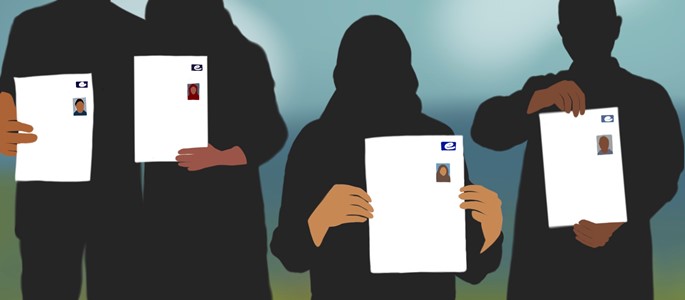New Qualifications Passport might be a game changer for refugees in Europe
A new initiative from the Council of Europe provides refugees the opportunity for an overall assessment of their education and work qualifications
For many refugees in Denmark and elsewhere in Europe, it is a big challenge to have their qualifications verified and document their education. It impacts negatively on the employment, further education, well-being and integration of refugees. Often, education certificates have been left behind in the country of origin or lost during the flight. Even for those who do have their certificates, it can be difficult to get them assessed based on European standards, and many years of work experience often cannot be documented at all.
But a new ground-breaking initiative from the Council of Europe could change that for the benefit of everyone. The initiative is called the European Qualifications Passport for Refugees (EQPR) and is a document stating an overall assessment of a refugee's work experience, education and language skills. The qualification passport can be used as documentation in the absence of certificates and is recognized throughout Europe.
The qualification passport has been tested in four European countries since 2017 and is now being rolled out in 22 countries following good project results.
The Danish state does not participate actively, but you can apply online from Denmark. The qualification assessment itself is carried out by a team of experts who are familiar with school systems and the labor market in the refugees’ country of origin, and who are able to provide a professional assessment of the person expected skills and experience.
Beneficial for the individual and for society
If you live in Europe, you might have encountered a taxi driver who was a trained surgeon, or had your mail delivered by an engineer. That’s because as a refugee in Europe, if you do not have access to your certificates, it is almost impossible to get a job within your field. Every second highly educated foreigner in Denmark works as an unskilled labourer – that is, outside the job field they’ve trained for and often at a much lower pay. With the qualification passport, the hope is that it will be easier for refugees to get education and work experience recognized and approved, which will undoubtedly have positive consequences for both the individual and the recipient society.
For the individual, it will be a significant help in ensuring integration, dignity and stability in life. It will mean that more people can use the skills and abilities they already have, instead of having to work as an unskilled labourer, as most refugees in Europe do today. It will ensure that fewer people end up unemployed simply because their previous education or experience will now actually count. And this in turn will mean that fewer people will have to start all over again with a completely different, often shorter, education. Refugees can finally be seen as the valuable contributors to society that they are: as active and resourceful participants with competences and useful abilities.
For some, this will even mean that the path to permanent residence can be a little shorter: when a person’s existing education is recognized and documented, she can get to work more quickly. Since education does not count as occupation in the Danish requirements for permanent residence, but full-time work does count, the path to getting there can in some cases be a little shorter — and the prospect of a secure life with a good income a little better.
Not least, it will be a major advantage for the European states, including Denmark, which all have a problematic shortage of employees in a number of sectors, including health care and construction. The qualifications passport for refugees will mean that educated people with the required skills, but without the necessary papers, e.g. doctors, nurses, laboratory technicians and engineers, will have a better opportunity to contribute to the societies which so desperately need them. A new analysis is on its way from EWSI (the EU's website for integration), which will point to massive shortcomings in member states' efforts to assess the skills brought by migrants and build on them.
In short: utilizing the resources and skills that refugees already bring with them is common sense and to everyone's advantage and is made easier with the introduction of the qualifications passport.
For whom and how?
Refugees and asylum seekers can apply for the European Qualifications Passport by filling in a short online form. Those who are selected for further inquiry complete a longer and more detailed questionnaire about education and work experience in the country of origin. Those who can access certain parts of these education certificates can have these assessed and the rest possibly reconstructed. Finally, the applicant is invited to a 45-minute interview where experts assess the applicant's qualifications and finally issue the passport. If possible, the interview takes place in the applicant's mother tongue language. The passport is valid for 5 years upon issue.
The Council of Europe's website has a flyer about the qualifications passport and the application process in Arabic, Dari, English, French, German, Greek, Italian, Polish, Romanian, Spanish and Ukrainian.
You can also see an example of the qualification passport here, or read more about integration, jobs and education in general for refugees in Denmark here.


